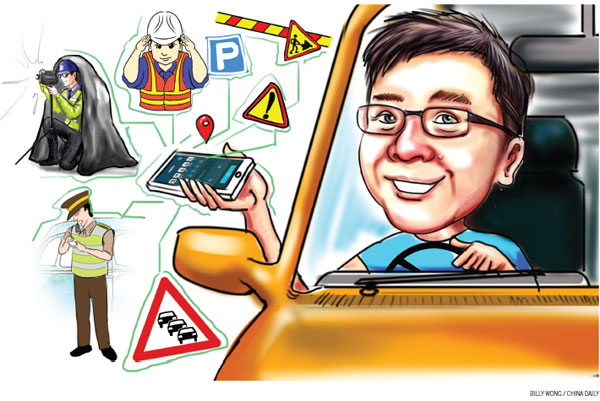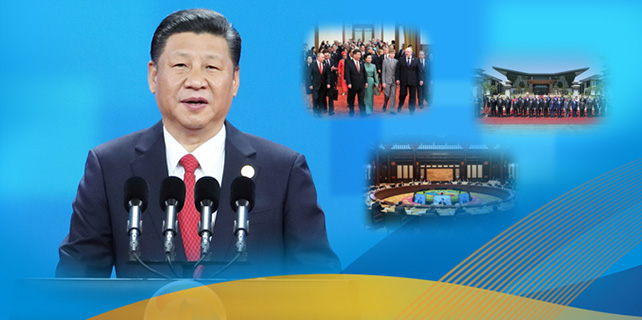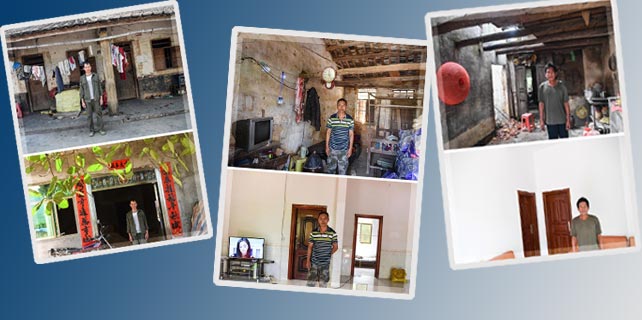Keeping drivers on their toes on the roads

Driving alongside half a million cars in such a packed, mega city like Hong Kong can be extremely mind-boggling, not knowing what to expect or how to respond to a potential crisis on the roads.
Local startup Appus Technology may have the answer with its smartphone app Omycar, aimed at easing a driver's sense of uncertainty and creating a community among drivers with just a simple swap of information.
Using its GPS (global positioning system) navigation, the app helps users to alert other drivers about where they should watch out for parking tickets or speed cameras, or planning their routes.
While other social media platforms like Facebook also enable users to post similar information, they are not designed to help drivers on the roads, explains Johnny Hui, Appus' co-founder and chief marketing officer.
With Omycar, posting a message is just a click away, without the need to type in any text as the GPS already provides one of the most important pieces of information - location. The location-based service also allows users to share information on the app.
Appus has taken another step forward in the past year by introducing the driving mileage. As the app guides the user to different locations, the driver can earn the mileage that can be used to redeem coupons for gas stations, car services, supermarkets or Uber rides.
"We hope to use this model, which will bring benefits to our users, to enhance user experience and ensure they'll stick to our service," says Hui.
Omycar has won over more than 72,000 drivers so far, with about 8,000 active daily users.
Following Omycar's initial launch in late 2014, the company has been inspired by the popular concept of on-demand service and aims to match drivers who want to have their vehicles repaired at the nearest workshops.
However, after talking to workshops and bringing the idea to fruition, Hui found that the model wouldn't work.
Car workshops in Hong Kong are usually run by one-man bands who could hardly take on an extra workload from the app, Hui explains, adding that after the matchup, the driver and the workshop could bypass the app and link up directly with each other.
The business model now focuses on big data analysis, in which the company would collect data and generate analytic reports to both users and the partners.
Data on traffic information and users' driving patterns, for instance, could help brands understand their customers better, and the company's data analysis capability could also set itself apart from other online-to-offline service providers, Hui contends.
More than 1 million miles of data have been accumulated on the platform since Appus began collecting data six months ago, providing interesting findings on how people drive.
"From these mileages, we've noticed how male and female drivers react under different circumstances," says Hui.
Male drivers, he notes, are more prone to accelerating suddenly than women, indicating that the former tend to have a higher chance of creating accidents. According to Appus, some 70 percent of Omycar users are men.
More than 60 percent of drivers have also been found to lift their mobile phones more than once each day.
The inspiration to come up with a driving app came from the experience of Appus' co-founders in driving in metropolises.
Hui's childhood friend Jerry Chen in Singapore and his friend Evan Li in Shenzhen are car owners who do care about acquiring better experience in driving, parking and getting car services in bustling cities with big space constraints.
Hong Kong is where the company has been testing its location-based service, while research and development are carried out in Shenzhen.
With an 11-strong team, Appus has set its sights on Taiwan and Singapore for further expansion.
Hong Kong is just too small a market, while the Chinese mainland market is too big for Omycar, laments Hui, adding that Taiwan and Singapore are very much similar to Hong Kong culturally, and Taiwan has a bigger market than Hong Kong's.
As of late last year, there were 583,037 registered private cars in Hong Kong while, in Taiwan, car ownership is close to 8 million, with the number of motorcycles and scooters having exceeded 13 million by March this year.
Omycar also plans to extend its service to motorcycles in Taiwan although Hui says they're novices in this field.
In Singapore, the number of private cars has been falling in recent years, having dropped to 504,160 in 2016.
Appus aims to conduct its next round of funding beyond Hong Kong after having raised a seven-figure amount from local investors.
"As we plan to expand our operations, it's natural that we look at investors beyond Hong Kong, such as in Singapore," says Hui.
iris@chinadailyhk.com
















